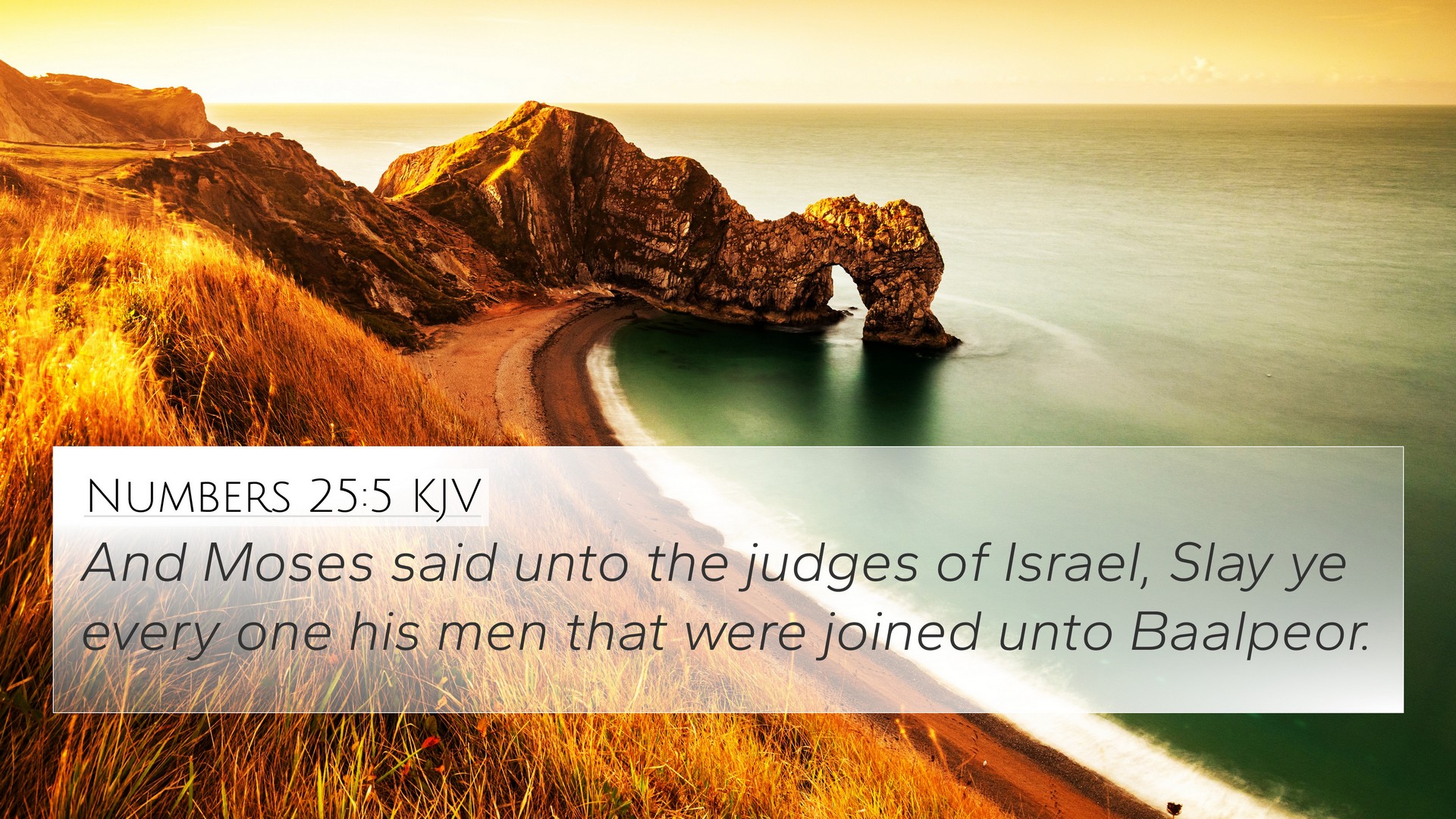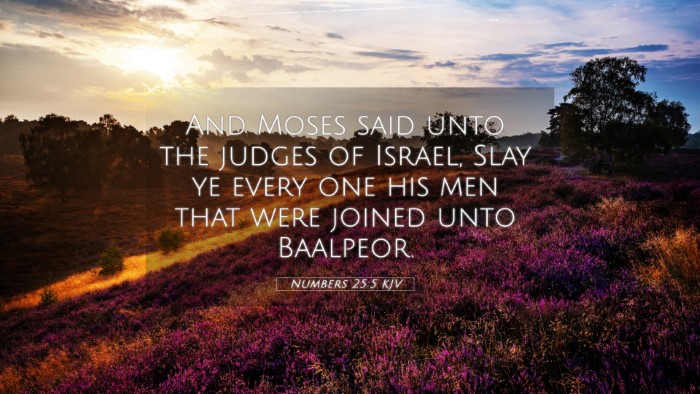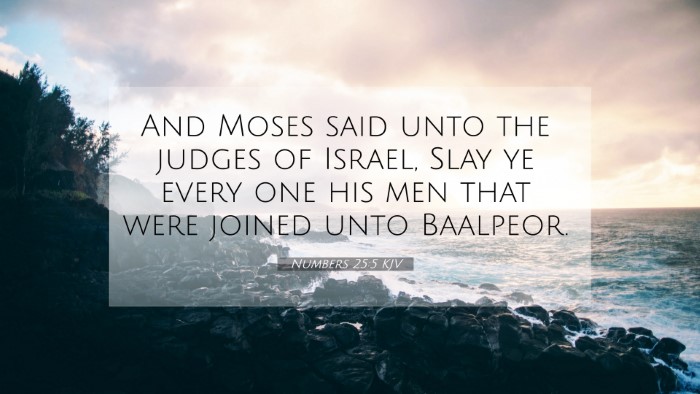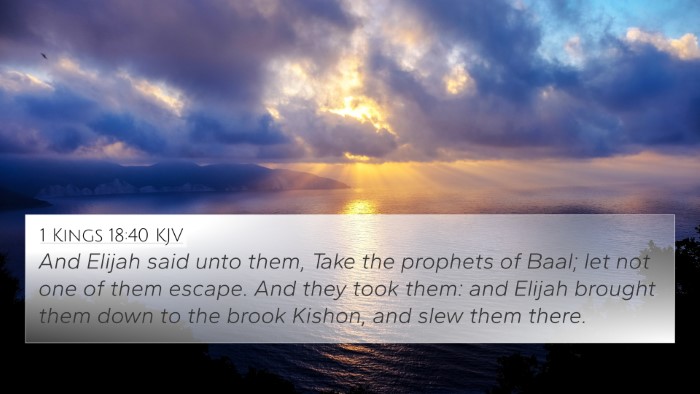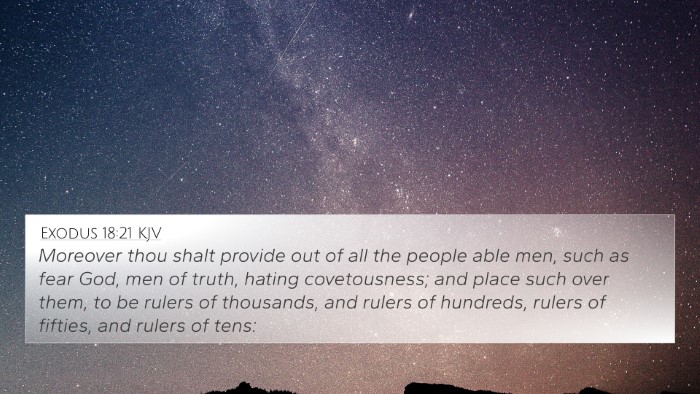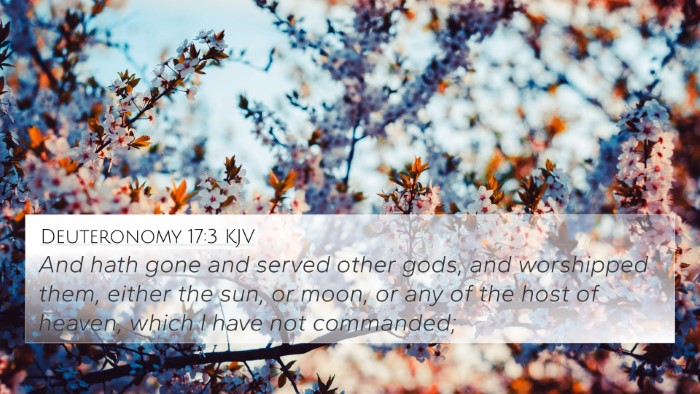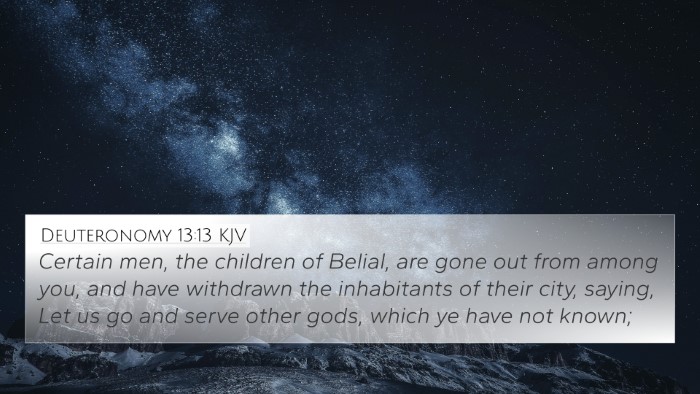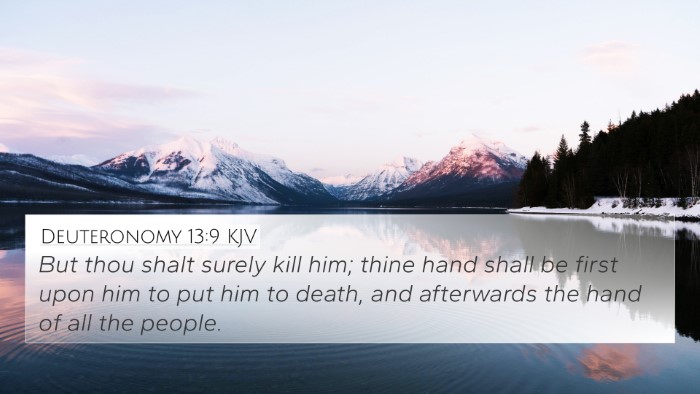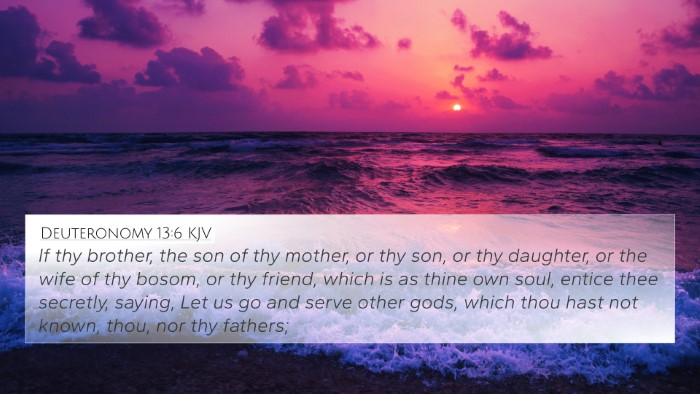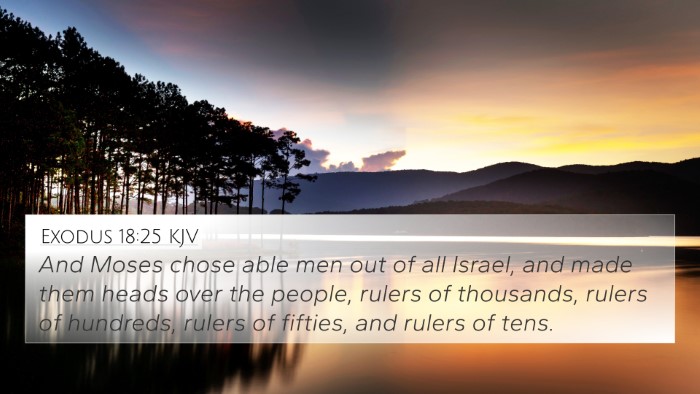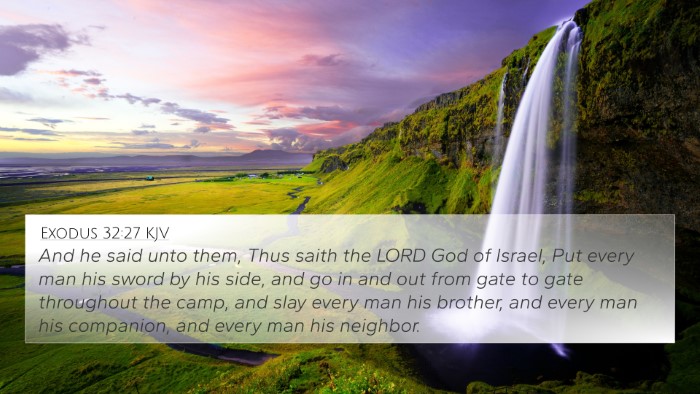Understanding Numbers 25:5
In the Book of Numbers, we are presented with a narrative that reveals significant moral and spiritual lessons. Numbers 25:5 contains crucial insights into the consequences of disobedience to God's commands and the nature of divine judgment. The verse reads:
"So Moses said to the judges of Israel, 'Each of you kill those of his men who were joined to Baal of Peor.'" (Numbers 25:5, ESV)
This verse is integral to understanding the broader themes of faithfulness and the consequences of idolatry, particularly in relation to the Israelites during their wilderness journey.
Exegesis and Commentary Overview
Three prominent public domain commentaries shed light on the meaning of this verse: Matthew Henry, Albert Barnes, and Adam Clarke. Here we synthesize their insights for a comprehensive overview.
Matthew Henry's Commentary
Matthew Henry emphasizes that this moment highlights God's aversion to idolatry and immorality. He notes that the Israelites, by joining themselves to the idolatrous practices of Moab and Baal Peor, turned away from the covenant relationship they had with God. The directive from Moses reflects both God's justice and the need for purity within the Israelite community.
Albert Barnes' Commentary
Albert Barnes discusses the gravity of the situation, noting that the Israelites' flirtation with Baal Peor was not merely a social practice but a severe breach of their covenant with God. He points out that Moses' command was a necessary response to maintain communal integrity and holiness. Barnes reinforces the idea that God's judgments are swift and serious when His people wander from obeying His laws.
Adam Clarke's Commentary
Adam Clarke provides further historical context, elaborating on Baal Peor's worship practices, which included sexual immorality and idolatry, representing a significant departure from the worship of God. Clarke interprets Moses’ command as a divine commandment to execute justice and purify the camp, ensuring that such sinful behavior would not spread among the people of Israel. He underscores that obedience to God's command is paramount for receiving His blessings.
Thematic Connections: Cross-Referencing Biblical Texts
Numbers 25:5 can be cross-referenced with other biblical texts that share similar themes, particularly regarding idolatry, judgment, and communal integrity. Here are several relevant cross-references:
- Exodus 32:27-28: Moses commands the Levites to kill the people who turned to idolatry, mirroring the gravity of Numbers 25:5.
- Deuteronomy 13:6-9: The command to put to death those who entice others to idolatry emphasizes the seriousness of remaining faithful to God.
- 1 Corinthians 10:8: Paul references this event in reminding the Corinthians of the dangers of sexual immorality and idolatry.
- Revelation 2:14: Jesus speaks against the Nicolaitans, paralleling the idolatrous practices seen in the story of Baal Peor.
- Psalm 106:28-31: This psalm recalls Israel's sinning at Baal Peor and highlights the resultant consequences.
- 2 Peter 2:15: This verse references the error of Balaam and idolatrous practices, drawing a parallel to Numbers 25.
- Romans 1:21-23: Discusses the folly of exchanging the glory of God for images, which relates to the Israelite's actions in worshipping Baal.
Lessons and Applications
From Numbers 25:5, several vital lessons can be derived for contemporary readers:
- The seriousness of idolatry: The text illustrates God's profound disapproval of forsaking Him for false gods.
- The necessity of communal purity: Moses' call for action reflects the importance of maintaining holiness and integrity within a community.
- The consequences of disobedience: The swift judgment serves as a reminder that God's laws are not to be taken lightly.
Conclusion
Numbers 25:5 serves as a stark reminder of the dangers of turning away from God and the severe consequences that can follow. The insights gathered from various commentaries highlight the verse's relevance to contemporary spiritual life, encouraging believers to deeply study the connections between Bible verses that address themes of faithfulness and judgment. Engaging with these themes through tools for Bible cross-referencing, such as concordances and study guides, can deepen understanding and foster a more profound commitment to living according to God's principles.
